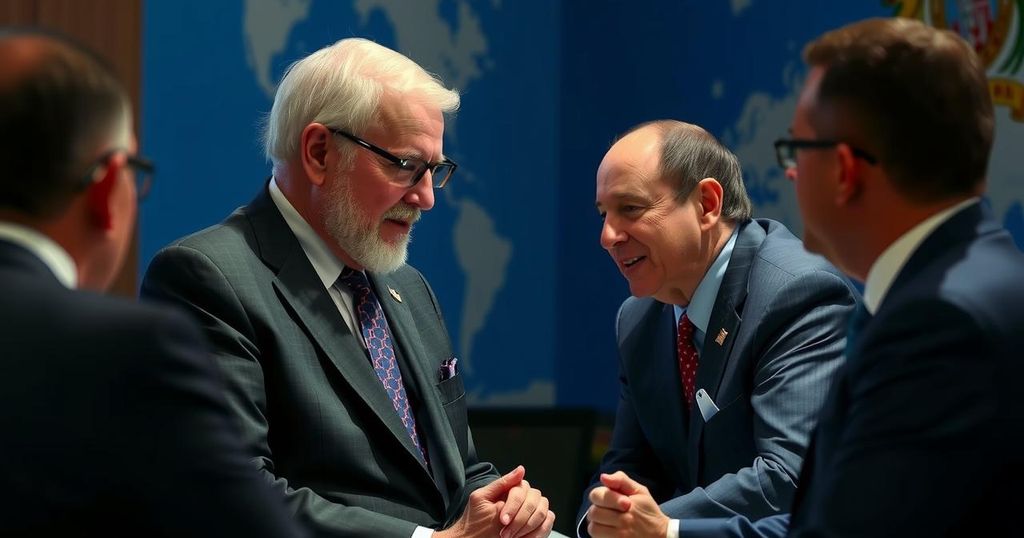Biden’s Diplomatic Farewell: A Final South American Summit Series

President Joe Biden is traveling to South America for potentially his last summits as president, engaging with world leaders at APEC in Peru and the G20 in Brazil. His meetings come amid uncertainty following the U.S. elections, focusing on trade relations with China and climate initiatives in the Amazon. The trip underscores his commitment to global diplomacy before the transition to the Trump administration.
President Joe Biden is embarking on what may be his final international engagements as incumbent leader, commencing a trip to South America this week. His itinerary includes attendance at the Asia-Pacific Economic Cooperation (APEC) summit in Lima, Peru, where he will engage with Peruvian President Dina Boluarte and other world leaders. This excursion follows the recent U.S. elections, which have raised uncertainties regarding America’s foreign policy under President-elect Donald Trump. Biden’s participation at APEC occurs amid anticipations of significant trade policy shifts, as Trump has pledged to impose substantial tariffs potentially reshaping global commerce. National Security Advisor Jake Sullivan articulated that Biden intends to “reinforce America’s leading role in the Indo-Pacific,” highlighting the collaborative relationships forged with other nations in the region. Following the APEC summit, President Biden is scheduled to meet with Chinese President Xi Jinping in a key conversation aimed at maintaining open communication channels, particularly concerning military relations, as both prepare for the transition of U.S. leadership. The meeting will provide an opportunity to reflect on the evolving U.S.-China dynamic and is expected to be among their last presidential discussions. The President’s visit to Manaus, Brazil, will focus on engaging with local leaders dedicated to the preservation of the Amazon rainforest. This marks a pivotal moment as it is the first visit by a sitting U.S. president to this significant ecological site, underscoring his dedication to combating climate change amid anticipated policy reversals from the forthcoming Trump administration. Subsequent to Manaus, President Biden will head to Rio de Janeiro for the G20 summit. Sullivan indicated the President’s commitment to reassuring allies and addressing foreign policy variations as Trump approaches his inauguration. Key discussions will encompass facilitating debt restructuring for developing nations and emphasizing geopolitical matters across various global regions.
The article discusses President Joe Biden’s upcoming diplomatic trip to South America, positioning it alongside the shifts in U.S. foreign policy anticipated with the arrival of President-elect Donald Trump. It highlights Biden’s interactions with international leaders, focusing on trade, climate change, and global alliances while indicating significant potential policy changes under the new administration. The context presents an essential transition period affecting U.S. relations with key global partners, emphasizing the strategic importance of Biden’s communications with world leaders before Trump’s inauguration.
In summary, President Joe Biden’s upcoming journey to South America symbolizes a crucial moment in U.S. foreign relations, especially amidst the impending shift to a Trump administration. The trip, which includes significant summits and meetings with world leaders, aims to solidify alliances and address critical issues ranging from trade to climate change. As Biden prepares to pass the torch, the influence of his legacy on international policies remains a significant consideration for U.S. allies.
Original Source: abcnews.go.com







